Ever since OpenAI launched ChatGPT on the tail end of 2022, the tech enterprise has been chasing artificial intelligence. For the last few years, tech companies have been ramping up AI enchancment — and also you may argue that everyone has been making an attempt to catch OpenAI. Nonetheless, it seems like no person has found the “killer app” for AI merely however. The yr 2024 will probably be characterised by the tech enterprise putting AI fully everywhere it’d, making an attempt to find out what would stick.
The model new yr will mark a serious shift, and the way in which during which customers work along with AI in 2025 is poised to differ. Presently, it’s worthwhile to exit of your methodology to utilize it. Loading up the ChatGPT website or calling upon the Gemini assistant is vital to converse with AI helpers. Subsequent yr, that seemingly won’t be the case. AI may be baked into the working methods and software program program you make the most of and may turn into succesful ample that it’ll expectedly start doing points totally in your behalf.
The tip of this yr has launched quite a lot of glimpses of what’s to return in 2025. Project Astra is being tested by people outside of Google, Android XR is the first working system constructed with Gemini on the core, and Apple Intelligence is now obtainable with ChatGPT integration.
We do not need to guess what AI will herald 2025 — tech companies and their executives have already laid out a number of their plans. There are nonetheless inquiries to answer, though. Which companies can really ship on their ensures, how will they alter how we use cell models and wearables, and what privateness implications will these shifts have?
AI will turn into the center of cell working methods
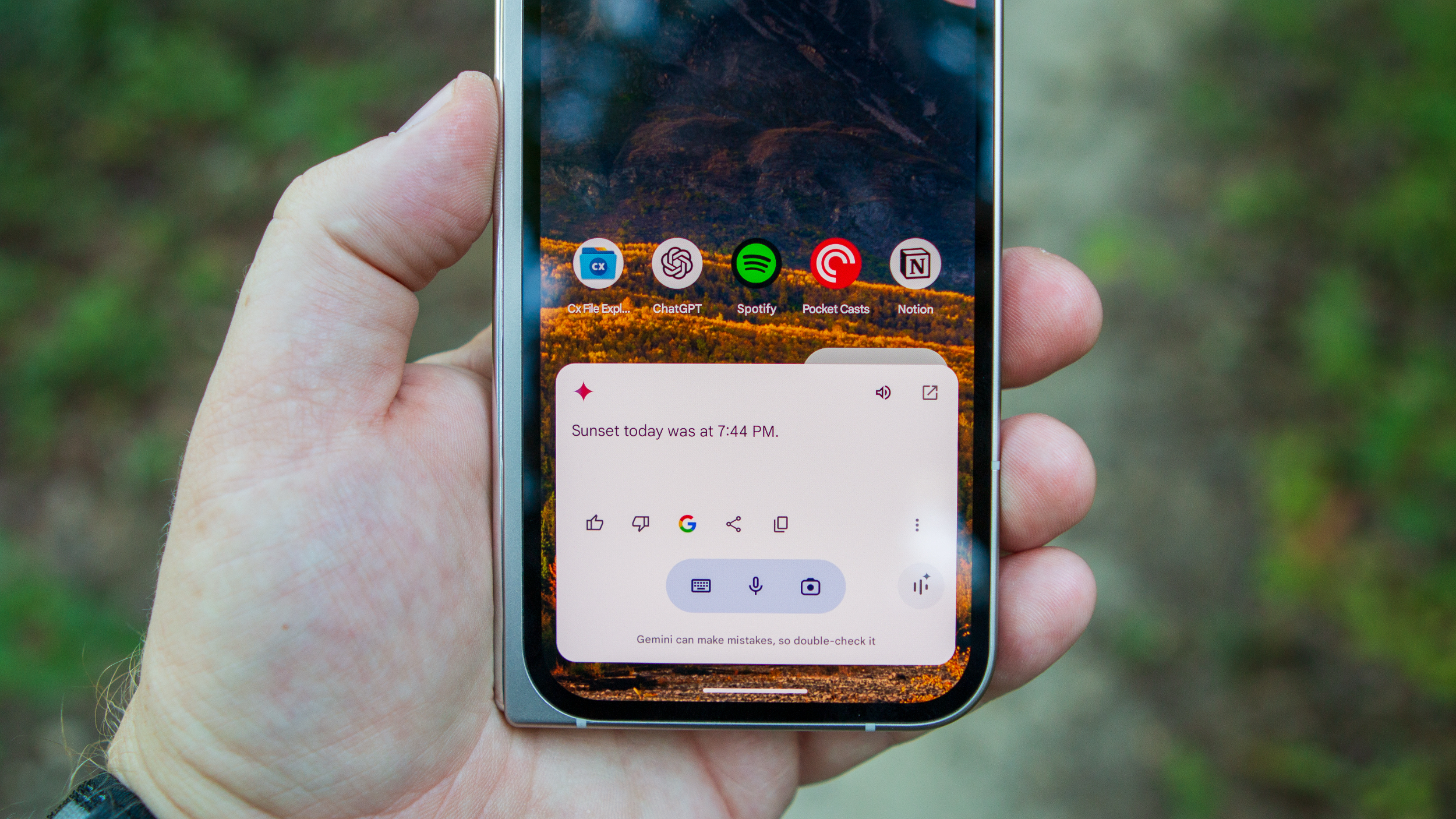
Up until now, artificial intelligence has powered many specific individual choices and apps. Some have been broadly worthwhile — OpenAI reported ChatGPT had 200 million weekly clients as of August 2024 — and others a lot much less so. Gemini, as an illustration, was downloaded about 780,000 situations in September 2024, per Statista. The amount for ChatGPT? Which may be 4.2 million downloads within the an identical month, whatever the ChatGPT app already being obtainable on iOS and Android for higher than a yr.
Within the meantime, {{hardware}} models created with AI at their coronary heart have definitively failed, and the Rabbit R1 and Humane AI Pin are two key examples from this yr. Notably, the Rabbit R1 was a tiny AI gadget that touted a “Large Movement Model” which may take actions in your behalf. Asking the Rabbit R1 to play a observe would require it to utilize Spotify for you, and ordering meals would have Rabbit truly use a DoorDash shopper on a distant server for you.
The rationale these models failed is because of, properly, people already have great phones. They’re further extremely efficient and better fitted to AI duties than specialised {{hardware}} models. In 2025, these mainstream models will turn into further akin to the failed AI merchandise. The Rabbit R1 and Humane AI Pin every goal to utilize AI to complete duties for you, and shortly, your smartphones, tablets, and wearables will do the an identical.
Rabbit’s failed thought referring to the LAM is what Google and others attempt to do correct with agentic AI fashions.
“Over the previous yr, now we now have been investing in rising further agentic fashions, which means they’ll understand further regarding the world spherical you, assume quite a lot of steps ahead, and take movement in your behalf, collectively along with your supervision,” said Google CEO Sundar Pichai in a blog post announcing Gemini 2.0. “With new advances in multimodality — like native image and audio output — and native software program use, it might permit us to assemble new AI brokers that carry us nearer to our imaginative and prescient of a standard assistant.”
What does that look like? It relies upon upon the company. Google is setting up Problem Astra, a multimodal AI helper that I tried at Google I/O 2024. It is able to absorb your surroundings and use exterior sources to course of queries after which reply with multimodal output. As an example, you may ask a question verbally with Problem Astra using a digicam or a search engine to attain right context. Then, it might presumably reply with written textual content material, a generated image, or spoken phrase — or a mixture of the above.
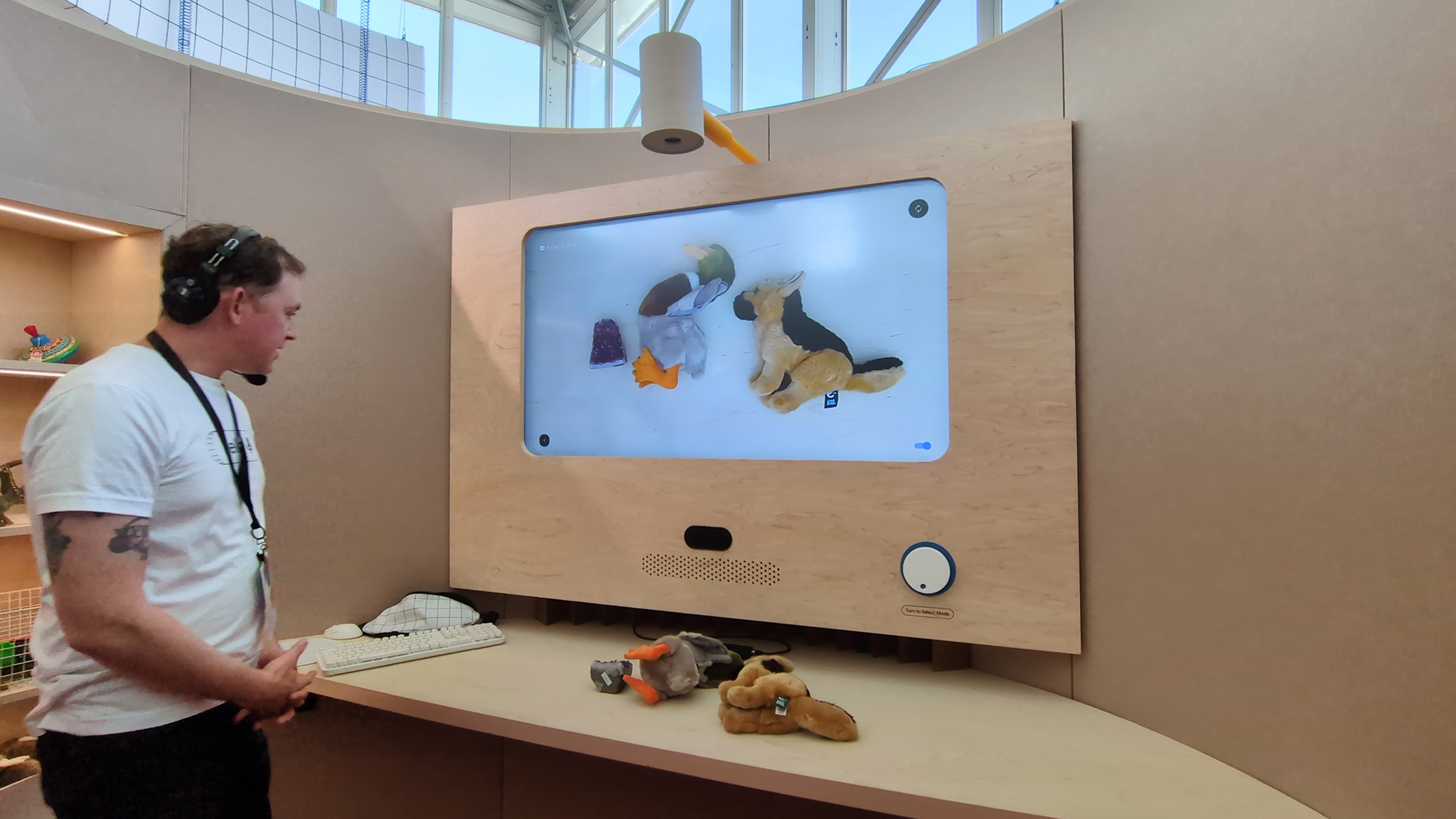
Though Problem Astra is just being examined by the use of Google’s “trusted tester program,” the company has confirmed off the software program program on telephones, glasses, and headsets. It moreover launched Android XR, a brand-new working system for headsets and wearables with Gemini on the core. It’s protected to say that Problem Astra will arrive on {{hardware}} subsequent yr, and which may embody Pixel telephones and an unreleased Samsung headset.
Individually, Google has Problem Mariner, a evaluation prototype that may truly browse Chrome for you inside the works. Meta AI already has multimodal assistance on Ray-Ban Meta glasses, and Apple has Seen Intelligence on iOS 18.2. Ultimate nevertheless not least, OpenAI has ChatGPT-4o, a multimodal assistant similar to Problem Astra.

There’s one factor that all these choices have in widespread: they will all turn into deeply built-in with smartphone, tablet, and wearable working methods. When obtainable, Problem Astra will all nevertheless truly debut on Pixel {{hardware}} in 2025. Equally, ChatGPT-4o is obtainable now on iOS 18.2 since Apple Intelligence choices ChatGPT integration.
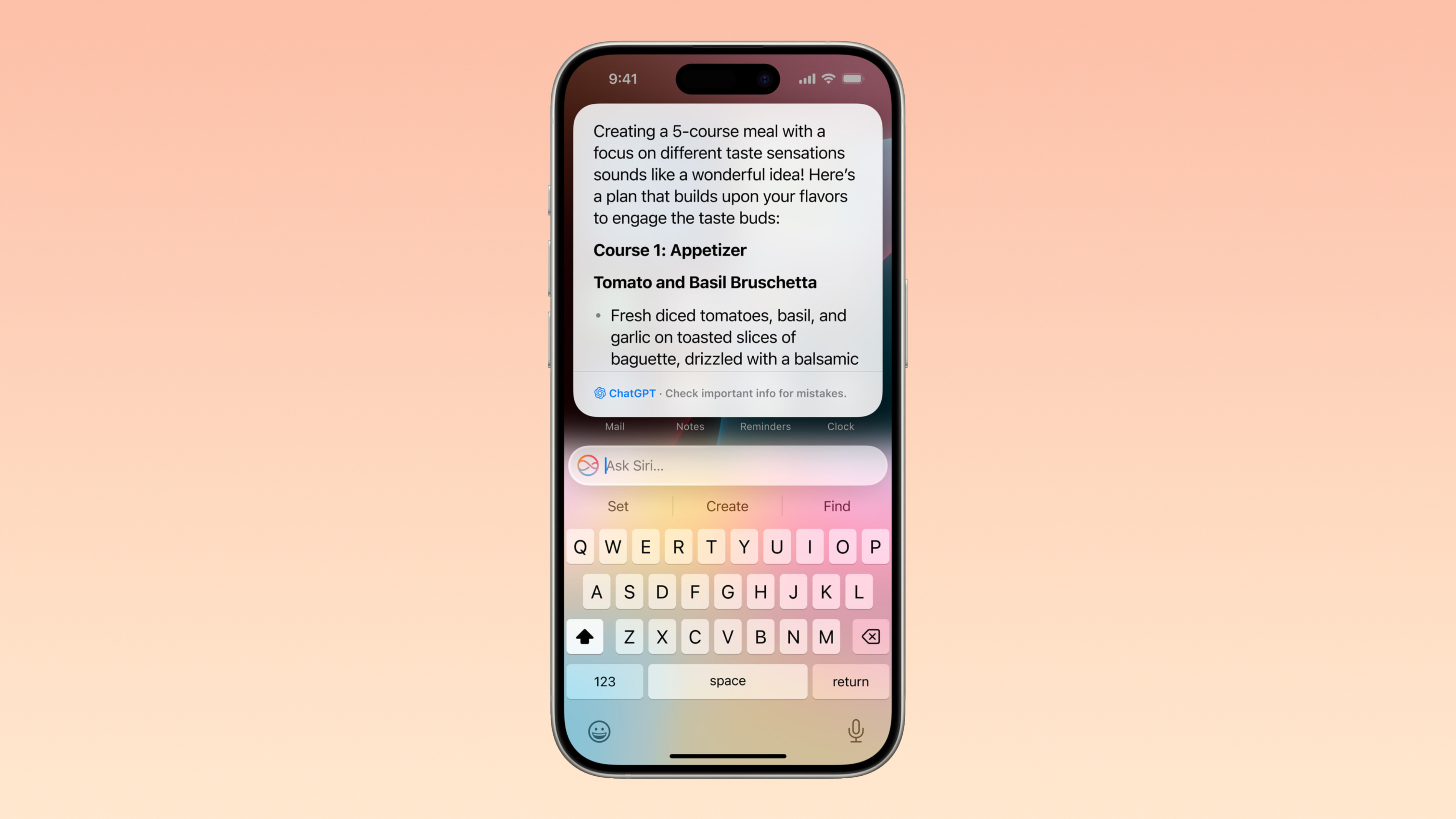
ChatGPT is obtainable system-wide in iOS 18.2, because you presumably can invoke it wherever with Siri. That’s an identical to how Android clients can set Gemini as their default assistant. Furthermore, Apple Intelligence’s Writing Devices may be discovered wherever you presumably can entry the keyboard. Samsung will follow suit with One UI 7.
So, two points are going to happen with AI in 2025. On one hand, AI suppliers like Problem Astra, ChatGPT-4o, and Seen Intelligence will use multimodal processing and actions to manage your cell models for you. On the other, smaller AI choices may be ingrained into the working system, so you’ll not should go to specific individual apps to entry suppliers like Gemini or ChatGPT.
Demis Hassabis, the CEO of Google DeepMind, knowledgeable The Verge in an interview: “We truly see 2025 as a result of the true start of the agent-based interval.”
Google, Apple, OpenAI, and others will compete to assemble the simplest fashions
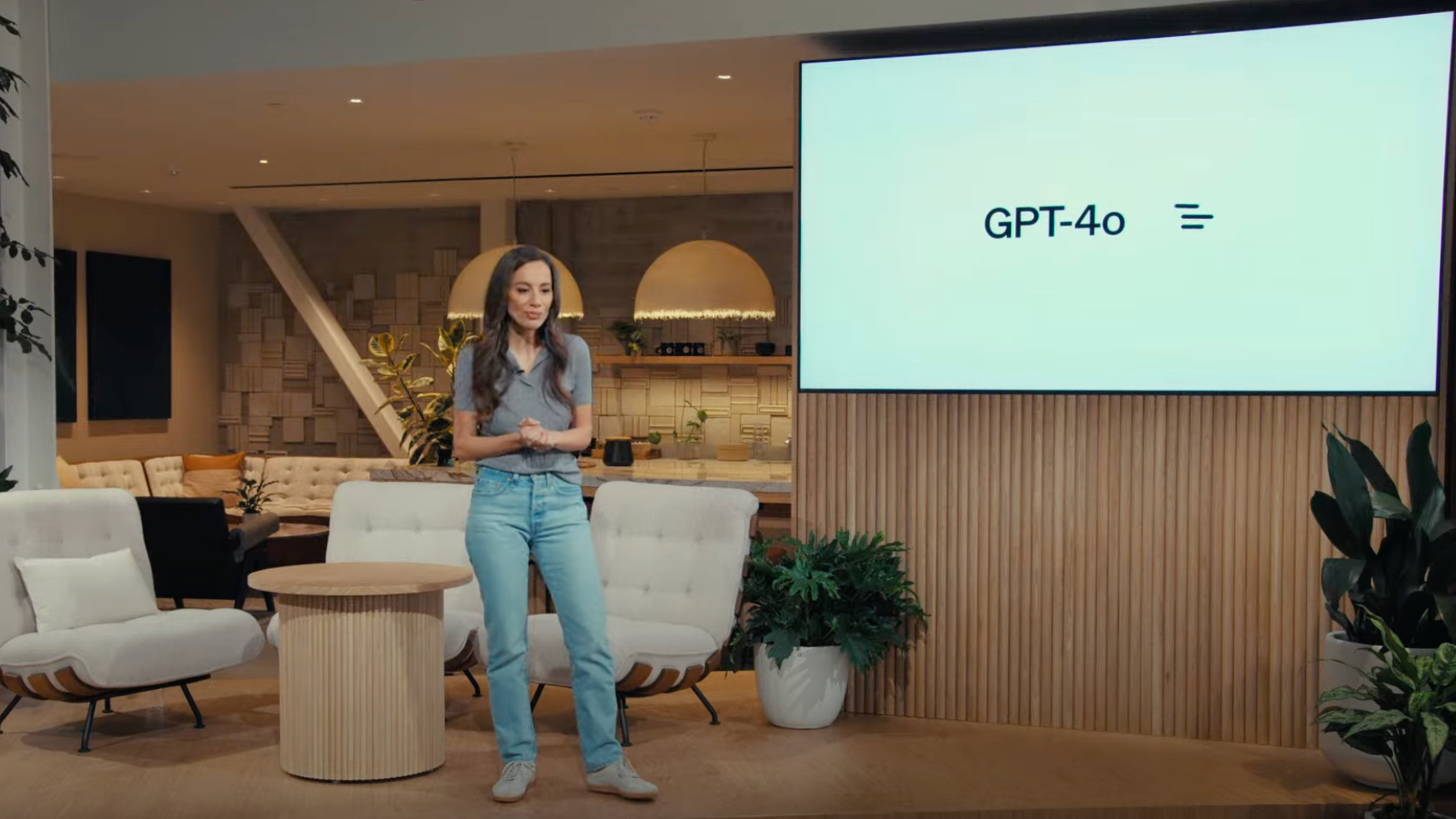
One in all many key unknowns for AI in 2025 is whether or not or not progress is destined to stall. Some specialists think about that AI progress was achieved so shortly in 2023 and 2024 that it’s sure to plateau in 2025. Excessive executives have, sometimes, acknowledged a potential slowdown. Nonetheless, they’re united in the direction of the idea of a “wall” or that we now have reached the boundaries of AI progress for now.
“When you start out shortly scaling up, you presumably can throw further compute, and you might make numerous progress, nevertheless you undoubtedly are going to want deeper breakthroughs as we go to the next stage,” Pichai said on the Dealbook Summit earlier this month. “So that you presumably can perceive it as there’s a wall, or there’s some small boundaries.”
In one in all his primary cryptic posts on X (beforehand Twitter), OpenAI CEO Sam Altman expressed an identical sentiment, saying, “There is no such thing as a such factor as a wall.”
Irrespective of whether or not or not there’ll or won’t be a slowdown, companies like Apple, OpenAI, Anthropic, and Google will all be vying to assemble the quickest and finest AI fashions. Whereas companies just like Google have vastly improved their AI fashions, OpenAI’s headstart and ChatGPT’s mannequin recognition have been necessary hurdles for opponents. Even when totally different companies are increased than OpenAI, clients might not care ample to switch.
They may even be navigating uncharted licensed waters because the federal authorities and society resolve what’s up for grabs in relation to AI teaching supplies. The New York Times is just one occasion of an entity for the time being suing OpenAI for what it alleges is a breach of copyright regulation.
Lots of these situations are for the time being ongoing, and we’re capable of rely on some to return to a head in 2025. Furthermore, it’s solely a matter of time sooner than further governments and regulators try to institute safeguards and protections spherical AI enchancment and use.
AI privateness and safeguards may be one factor to look at in 2025
Lastly, we’ll end our preview of AI in 2025 with a take a look at what types of privacy efforts and safeguards will be put in place subsequent yr. Sadly, I consider the traces might turn into blurred as to what’s personal and non-private as regards to AI.
Apple Intelligence is normally often called the enterprise customary for AI privateness — the company developed custom-made Private Cloud Compute servers that run a hardened OS, and Apple dares hackers to aim to crack it. Within the occasion that they do, there’s as a lot as a million-dollar reward.
The difficulty is that there are three types of security ranges baked into Apple Intelligence. Some duties run on-device using the NPU inside Apple silicon chips, and others are outsourced to Apple’s Private Cloud Compute servers. You’ll not know whether or not or not an Apple Intelligence exercise is working on-device or not. That’s as a lot as Apple, and it is advisable to perception it.
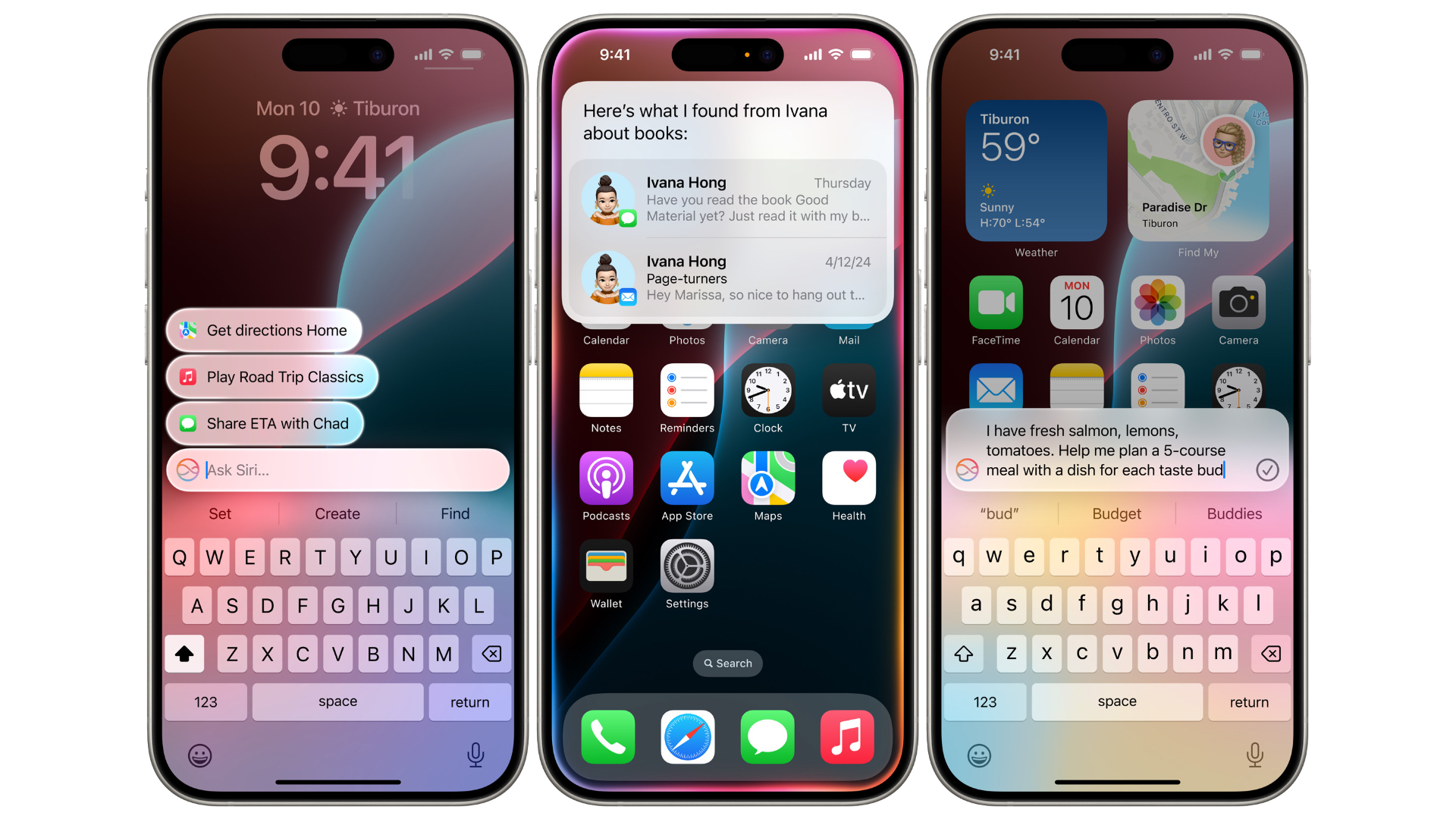
Then, there’s ChatGPT integration, which Apple views individually from Apple Intelligence — there are some privateness protections for patrons, nevertheless their requests are nonetheless shared with OpenAI, even when they aren’t saved. While you hyperlink your ChatGPT account with iOS 18, one factor that’s required to utilize ChatGPT Plus and Skilled, you adjust to OpenAI’s privateness insurance coverage insurance policies, not Apple’s.
In 2025, I consider there may be so many AI choices baked into our necessary models that it is going to be unattainable to really think about the privateness insurance coverage insurance policies and safeguards for each. It’s going to be akin to agreeing to the “terms and conditions” sooner than establishing a model new gadget. We’ll should perception that AI companies are showing in our best pursuits. The one methodology we’ll know that companies aren’t dwelling as a lot as their ensures is as soon as they inevitably fall fast.
